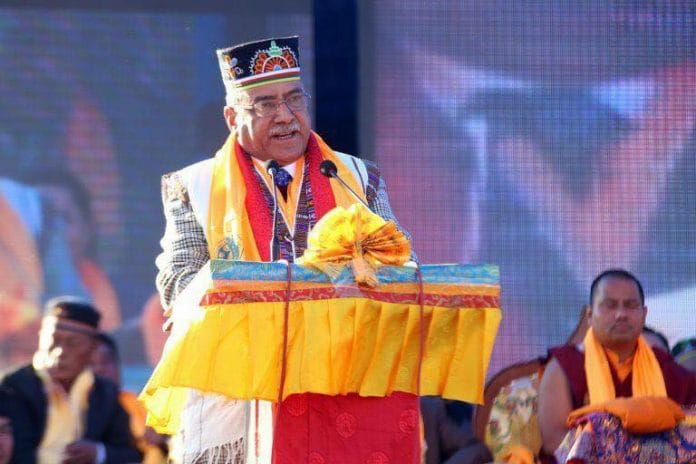Prachanda’s CPN (Maoist Centre) is in government with Nepali Congress, but has joined hands with K.P. Oli’s CPN (UML) for forthcoming elections.
New Delhi: The political instability in Nepal has thrown up a peculiar, rather unheard of, situation in its government. The country now has 17 ministers without portfolios, and two parties as allies in the government but who are contesting the forthcoming elections as rivals.
As part of the alliance between the Nepali Congress and Maoists, Communist Party of Nepal (Maoist Centre) leader Pushpa Kamal Dahal or ‘Prachanda’ first became Prime Minister, after which Nepali Congress leader Sher Bahadur Deuba took over in June this year. Their joint government was to hold elections and, in fact, there was even talk of a possible alliance between the two.
However, earlier this month, Nepal’s biggest communist parties came together with Prachanda’s CPN (Maoist Centre) allying with K.P. Oli’s CPN (UML) — the same party from whose government Prachanda had withdrawn support a-year-and-a-half ago. This new communist alliance decided they would fight elections together, and eventually merge and form one communist party after the election.
This alliance, however, specified it had no intention of destabilising the government. The Maoists would continue to be a part of the government and the NC-Maoist combine could hold elections.
A furious Nepali Congress, however, was now saddled with a peculiar situation. Maoists were in government with it and the crucial home ministry was under them, which would play a key role during elections.
Home minister Janaradhan Sharma was also among the architects of the alliance with CPN (UML). Voices in the Nepali Congress for sacking the Maoist ministers started getting louder, while Maoists on their part maintained they were happy to be a part of the ruling alliance, would hold elections, and that their electoral alliance would not interfere with their duties.
However, with Parliament dissolved, Nepali Congress could not do what it wanted and sack the Maoist ministers. And so, under pressure to act, Deuba devised an innovative way of handling the situation.
All Maoist ministers — 17 (10 cabinet and seven ministers of state) — were divested of their portfolios; they could enjoy some perks but would no longer have control over ministries and so would not be able to use them during elections. Nepali Congress and its allies would be the ones retaining control.
While Deuba kept some important portfolios, including home and foreign, with himself, four were given to the Rastriya Prajatantra Party.
Sources say the Maoist ministers who now have no portfolios might resign soon, perhaps after the first phase of nomination.
Hence, Nepal now has this strange situation where a party — CPN (Maoist Centre) — is in government with another party — the Nepali Congress — but does not share any substantial power as it is divested of portfolios, and is in partnership with yet another party — the CPN (UML) for the forthcoming elections.






